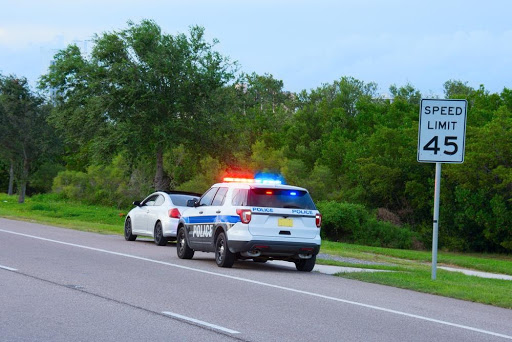
The Supreme Court of Canada recently found that excessive speeding, even momentarily, can be a departure from a reasonable standard of care. Essentially, the Supreme Court is telling drivers across the country that even when briefly passing a semi-truck on a rural highway, it can establish the mens rea for dangerous driving.
In R v Chung, the Appellant was found not guilty at trial of dangerous diving causing death under s. 249(4) of the Criminal Code. In the early morning hours, Chung drove his vehicle three times the speed limit towards a major intersection and crashed into a left turning vehicle.
A dashboard camera from another vehicle captured the incident. Over the span of a block, Chung moved into the curbside lane, passed one car on the right and accelerated from 50 km/h to 140 km/h before entering the intersection.
The trial judge found that Chung was not inattentive and was not driving in a dangerous manner prior to the one block lapse of judgment. Defence counsel called an expert who testified that Chung was driving a powerful vehicle that could accelerate from 0 to 100 in 4.5 seconds.
Given all of the circumstances, the trial judge found that the excessive speeding was objectively dangerous and the actus reus of dangerous driving was made out.
However, the judge found Chung not guilty because he had a reasonable doubt that Chung met the mens rea for the offence given the speeding was momentary.
Court of Appeal
The British Columbia Court of Appeal disagreed with the trial judge and found that he erred in law by finding that a brief period of speeding negates a driver’s mens rea. The Court of Appeal overturned the acquittal and found Chung guilty, given Chung would have been found guilty had it not been for the error.
Supreme Court of Canada
Chung didn’t take kindly to the ruling at the Court of Appeal and took his displeasure to the Supreme Court. It didn’t turn out how he had hoped.
Justice Sheilah Martin (formally of our law firm), writing for the majority, agreed with the BC Court of Appeal that the trial judge erred in law:
I agree with the Court of Appeal that the trial judge’s fixation on the momentariness of the speeding demonstrates an error of law. Clearly, momentary excessive speeding on its own can establish the mens rea for dangerous driving where, having regard to all circumstances, it supports an inference that the driving was the result of a marked departure from the standard of care that a reasonable person in the same circumstances would have exhibited.
In dissent, Justice Karakatsanis found that the trial judge’s decision to acquit was not tainted by legal error:
Read fairly and as a whole, the reasons disclose that the trial judge was aware that both excessive speed and momentary conduct could meet the marked departure standard, depending on the circumstances…inferring that the trial judge failed to compare the appellant’s conduct to that of a reasonable person because he did not explicitly describe what a reasonable person would have done in the circumstances is tantamount to presuming that he misunderstood the applicable legal principles.

Slow Down!
This Supreme Court decision will without doubt make it easier for the Crown to prove dangerous driving when the only misconduct is excessive speeding.
Cory Wilson is a criminal defence lawyer based in Calgary. If you have been charged with a criminal offence or are a suspect in a criminal investigation, call today for a free, no obligation consultation.
